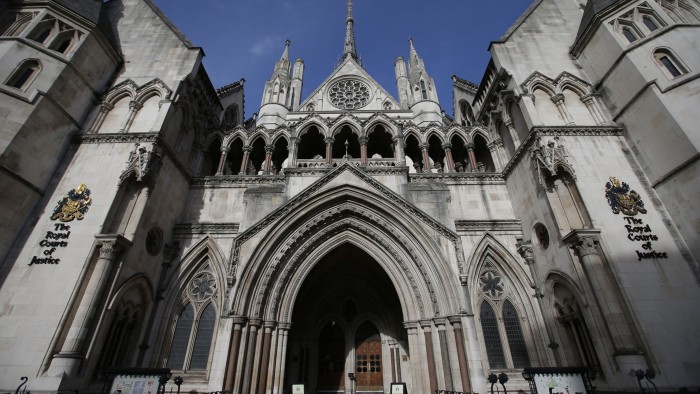Unlock the Editor’s Digest for free
Roula Khalaf, Editor of the FT, selects her favourite stories in this weekly newsletter.
Commercial lawsuits launched in England’s High Court have reached the lowest level in six years as litigation funders become warier of financing claims and more companies turn to arbitration to settle disputes.
In total, 3,380 commercial claims were filed in 2024, a 10 per cent decline from a year earlier and the lowest volume since 2018, according to data from litigation intelligence platform Solomonic.
Top litigators said the commercial courts are intensely busy and that London remains a global jurisdiction of choice for dispute resolution. Active High Court cases include some of the highest value and most complex in legal history, such as the largest-ever mass lawsuit against mining group BHP.
However, these reflect lawsuits filed years previously. While lawyers cautioned against drawing firm conclusions from the volume of claims, the data points to a recent moderation in the High Court litigation boom that has driven a fees bonanza for legal London.
Litigation funders, investors that finance lawsuits, said the figures provided evidence of how restrictions on how they could be rewarded in successful cases were curtailing access to justice.
Funders have been prevented from receiving a percentage cut of damages in certain cases since a ruling in 2023 from the Supreme Court, known as Paccar.
“I have seen a definite reduction in the amount of funding that has been made available,” said Susan Dunn, founder of Harbour Litigation Funding, which has financed high-profile claims against companies including Mercedes and Hiscox.
“There are claims which are not getting off the ground now that might have got off the ground a couple of years ago,” she added. “Without question, Paccar has caused an additional caution in relation to certain cases.”
The Solomonic data covers a range of sub-courts that hear business disputes, including the Commercial Court in the King’s Bench Division and the Chancery Business List.
The moderation last year compared with 2023 was driven in part by a tailing off in lawsuits that companies brought against insurance companies over business interruption coverage during the pandemic.
Lawyers said there had also been a recent slowdown in collective lawsuits filed by shareholders that had been stung by share price drops and claimed the company in which they invested had misled them.
However, several areas remain particularly buoyant, including fraud and cryptography-related claims.
Lawyers also said more parties were choosing arbitration to settle disputes.
Sarah Parkes, partner at law firm Freshfields, said: “We remain very busy. The litigation market in the UK remains very buoyant. But it’s in flux. While there’s a lot of litigation at the moment, it’s not necessarily in the High Court.”
John McElroy, vice-president of the London Solicitors Litigation Association, said the increased use of early-stage mediation and the uncertainties in litigation funding were among several factors that explained the dip in filed claims.
“Despite this disruption, the reality is that London remains the pre-eminent centre for dispute resolution,” he added.




